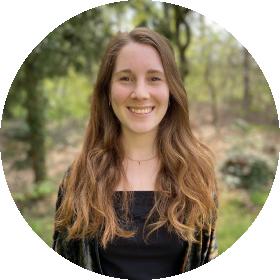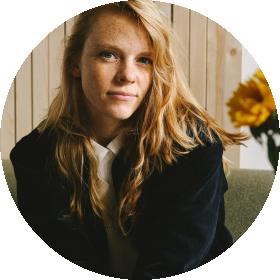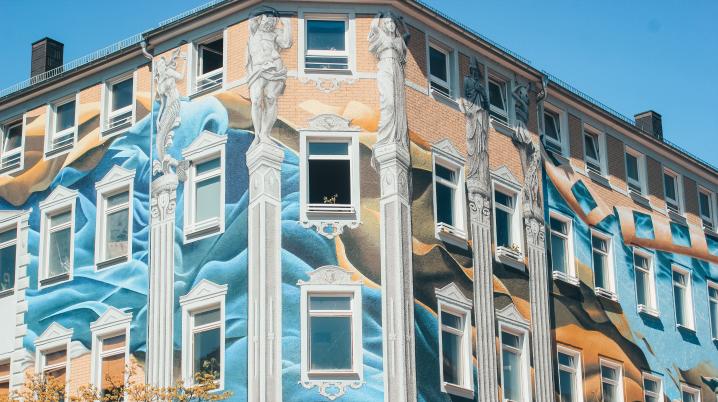
Date: Wednesday 14 June 2023
Time: 17:00 – 19:30
Location: Goethe-Institut Rotterdam, Westersingel 9, 3014 GM Rotterdam
Language: English
We want to move away from highbrow culture and chic baroque, look beyond the hype around Berlin and the metropolitan vibes in the Ruhrgebiet – at this event we turn our gazes towards the city of Chemnitz in Saxony, Germany, close to Dresden and Leipzig. We have invited voices from the east to the podium to reflect on the artistic means put into place to enhance cultural participation in Chemnitz, a city with an interesting past and creative future. We explore new, stimulating forms of socio-cultural practices taking place in Rotterdam and Chemnitz, and dive deeper into how intercultural exchange might strengthen those projects.
In 2025, Chemnitz will be European Capital of Culture. Under the motto C the Unseen, there will be a strong focus on socio-culture, art and makers culture. Four cultural experts from Chemnitz (Hannah Zimmerman, Katja Manz, Robert Verch and Steffen Biernath) will join us for an afternoon at the Goethe-Institut Rotterdam to give us more insights into their plans for the European Capital of Culture year as well as current developments within the cultural scene of eastern Germany. A great chance to meet with Dutch counterparts and discuss cultural trends in Germany and the Netherlands, as well as exchanging ideas for potential future cultural collaborations.
Which long-lasting impact does Chemnitz hope to achieve by being Capital of Culture? In which ways are arts and culture practices interwoven with local communities and citizens? What are the opportunities in terms of international cultural collaboration, especially for the Netherlands as neighbouring country?
At this event, Dutch and German cultural experts exchange ideas on the power of socio-culture and cultural collaborations. Together, we will have a closer look at two post-industrial cities that have not been on the international radar for many years, cities one may fall in love with at second sight: Chemnitz and Rotterdam.
Programme
16:45 Doors open
17:00 Welcome by moderator Inez Boogaarts
17:10 Keynote by Steffen Biernath (Chemnitz European Capital of Culture 2025)
17:30 Keynote by Léon van Geest (Rotterdamse Dakendagen)
17:50 Panel discussion on creating platforms for cultural participation with Judy Rambags (MaMA, Afrikaanderwijk Coöperatie) and Robert Verch (Klub Solitaer e.V.)
18:25 Panel discussion on the interface of arts, culture and (socio-) political issues with Hannah Zimmermann (ASA-FF e.V.) and Katja Manz (Social/Cultural Geographer)
19:00 Networking drinks and snacks
About the panel 'Creating platforms for cultural participation in Rotterdam and Chemnitz'
In this first panel, we are diving into participatory art practices in Chemnitz and Rotterdam. Judy Rambags and Robert Verch will give us insights into their work at MaMA, Afrikaanderwijk Coöperatie and Klub Solitaer e.V., including daily practices, outcomes and challenges when working with citizens and neighborhoods. Together, we will discuss the broader context in which local cultural activities take place, current trends in the field of socio-culture in the Netherlands and Germany, and possible ways to carry out cross-border collaborations.
About the panel 'The interface of arts, culture and (socio-) political issues'
Katja Manz and Hannah Zimmermann are both experienced in working at the intersection of arts, culture and politics in Germany. How can art stimulate (socio-)political debates among citizens and what are the effects of such projects? This second panel sheds light on the ways citizens' stories, experiences and memories become tangible and visible for others, with a focus on the continuities of right-wing and racist violence in Germany, and the resistance against it.
Speakers
Hannah Zimmermann (DE) is a sociologist and works for the NGO ASA-FF e.V. in Germany on human rights-oriented educational work using artistic and scientific means. After researching and publishing on the NSU right-wing network and documenting the legal and parliamentary reappraisal of the NSU, she conceived and directs the projects "Offener Prozess" and "re:member the future". At the interface of art and science, the projects include an internationally traveling, multilingual and inclusive exhibition, art education, critical walks, creative research projects, didactic material for schools, and work on a documentation center on the NSU complex.
Inez Boogaarts (NL) works as a freelance consultant, manager and researcher in arts & culture in Germany, Belgium and the Netherlands. This includes Fonds Soziokultur, IDEA (Brussels), Kunstmuseum Bochum. She has international experience in management, cultural cooperation, diversity and strategy & transformation processes. She was a.o. Director of Poetry International Festival, Rotterdam (2019-2021), Director of the Zukunftsakademie NRW, Bochum (2016-2019); Director of Rotterdam Council for Art and Culture (2012-2015) and Head of the press and culture department of the Consulate General of the Netherlands, Düsseldorf (2006-2011). Inez is born and based in Rotterdam.
Judy Rambags (NL) graduated with a degree in Visual Arts at ArtEZ Institute of the Arts in Arnhem. In 2003, she founded a Netherlands-based gallery and consultancy in art & design to present limited editions, one-offs and collectables from emerging designers and artists within the creative disciplines of art, design and fashion. Judy works as board member and project coordinator at Afrikaanderwijk Coöperatie, encouraging sustainable local production, knowledge exchange, cultural development and entrepreneurship based on shared responsibility and participation. Next to that, she is director at MaMA, a platform and homebase for the youngest generation of artists and art lovers in Rotterdam.
Katja Manz (DE) is an urban researcher and has been working on methodological approaches that focus on walking as a practice to reflect urban environment. By using artistic and participatory methods she connects different perspectives of people and temporal layers. Focusing on perceptions and meanings of urban spaces from the view of the inhabitants, the results are mostly processed audio-visually. Over the last 15 years she has worked in different interdisciplinary contexts - as a researcher at the Technical University of Chemnitz (2009-2015) and as a curator at the museum of archaeology smac (2018-2021). Recently, she developed the participatory part of the We Parapom Flagship project of the European Capital of Culture Chemnitz 2025.
Léon van Geest (NL) is the co-founder and co-director of Rotterdamse Dakendagen (Rotterdam Rooftop Days), a festival founded in 2014, to open the space above our heads to a general audience through cultural programming. Next to an annual festival with over 50 rooftops open and programmed for a weekend, last year Rotterdamse Dakendagen organized a Rotterdam Rooftop Walk, which attracted 200.000 paying visitors in a month, and June 1st this year a big Art park on top of a shopping mall will open for a month.
Robert Verch (DE) worked for several years as a freelance artist. After moving to Chemnitz in 2016 he focused on cultural management with a view on urban development for the association for creative industries in Chemnitz (Kreatives Chemnitz e.V.). Since 2018 he is part of the voluntary board of Klub Solitaer e.V. and since 2021 he works full-time at Klub Solitaer as project manager and curator. Since 2019 he is in the voluntary board of auf weiter flur e.V., developing a cultural hub in the rural area focussing on digitalization and participation.
Steffen Biernath (DE) works as project developer and quality manager at Chemnitz European Capital of Culture 2025. His responsibility lies in the strategic development processes of the Bidbook projects as well as in the implementation of projects focusing on the intersection of diversity and inclusion. As queer public figure, Steffen is involved in activities related to the Christopher Street Day in Leipzig and sets up his own queer events. During his studies in Art History and Media and Communication Science, he gained experience in the cultural field at a young age. In addition to managing small festival, he worked in the Hallender Clubkultur for more than five years, where he also started his DJ career. As a quality manager, he acquires knowledge of quality assurance measures, which he applies in his work at Chemnitz European Capital of Culture: Structural development in the changing cultural landscape.



